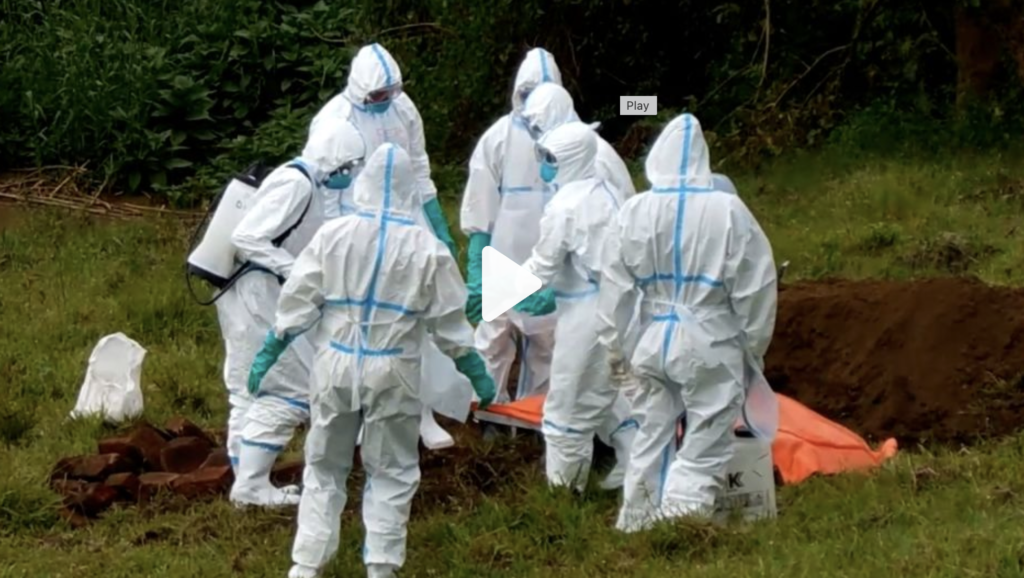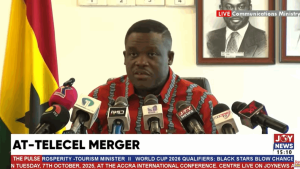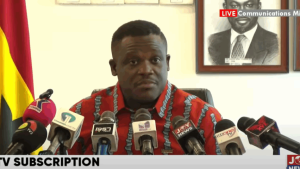
Ghana bolsters its defences as new Ebola threat looms
A deadly new Ebola virus disease outbreak has struck the Democratic Republic of Congo (DRC) for the 16th time. At least 15 people have died, including four healthcare workers. For us in Ghana, this news is a sombre reminder that vigilance is paramount. While the outbreak is in central Kasai Province, the interconnectedness of our continent means we must not take this news lightly.
A recurring nightmare in Congo
The latest outbreak, which has recorded 28 suspected cases, confirms the presence of the Zaire strain of Ebola. This strain is known for its high fatality rate. A 34-year-old pregnant woman, who later died, was the first confirmed case. Her symptoms, including high fever and repeated vomiting, brought the disease to the attention of health officials.
The country’s history with the virus is grim. The deadliest outbreak in 2019 claimed more than 2,000 lives. Just three years ago, a smaller outbreak killed six people. This persistent cycle is fuelled by conflict and poor health infrastructure in the vast Central African nation.
Background on the Ebola virus
Ebola disease first occurred in 1976 in two simultaneous outbreaks: one of Sudan virus disease in Nzara in what is now South Sudan, and the other of Ebola virus disease in Yambuku, in what is now the DRC, then known as Zaire. The latter occurred in a village near the Ebola River, from which the disease takes its name, according to the World Health Organization (WHO).
Ebola is a highly contagious haemorrhagic fever that causes a range of symptoms such as fever, vomiting, diarrhoea, generalised pain or malaise, and in many cases, internal and external bleeding.
Global response and local action
The WHO is responding with urgency. The organisation stated it was “acting with determination to rapidly halt the spread of the virus and protect communities.” It noted that “case numbers are likely to increase as the transmission is ongoing.”
The WHO is working with local teams to find and care for infected people, aiming to ensure everyone is protected as quickly as possible. The DRC has a stockpile of 2,000 doses of the Ervebo vaccine, which the WHO says is “effective to protect against this type of Ebola.”
The virus, thought to originate in fruit bats, spreads through direct contact with bodily fluids such as blood, vomit or faeces. Health officials have urged strict adherence to preventive measures, including frequent handwashing and social distancing in high-risk areas.
Beyond the WHO, the global community must continue to support affected nations with resources and expertise, understanding that a threat to one is a threat to all.
The ghost of 2014–2016: our lessons learned
The 2014–2016 Ebola crisis was an unforgettable period for West Africa. The outbreak began in Guinea and then spread to neighbouring Liberia and Sierra Leone, causing widespread panic and a massive loss of life. More than 11,000 people died, with Guinea, Liberia and Sierra Leone bearing the brunt of the tragedy.
During that time, Ghana’s preparedness was tested. A 2015 study in the Ghana Medical Journal highlighted the fears of healthcare workers and a lack of protective equipment. One health professional was quoted as saying, “We were scared. We were told to handle suspected cases, but we did not have the right gear. It felt like a suicide mission.” The study noted that a “lack of coherent messaging and direction from leadership” limited coordination and reinforced “a level of mistrust in the government’s ability.” These are critical lessons we must not forget.
Ghana’s current defence and vigilance
While the ghost of the 2014 outbreak haunts our memory, Ghana has taken concrete steps to reinforce its defences. The Ghana Health Service (GHS) and other agencies have implemented stricter surveillance at key points of entry, including Kotoka International Airport and land borders. These measures, which were tested and refined during the last outbreak, are our first line of defence.
The GHS, with support from the WHO and partners, has established protocols for rapid detection, isolation and contact tracing. As a senior official with the GHS confirmed, “Our systems are more robust now. We have a better-coordinated response plan, and our staff are continuously trained on infection prevention.”
This proactive approach is a testament to the lessons learned from the region’s past struggles.
How to stay safe and prevent the spread
As a nation, Ghanaians must remain vigilant. Understanding how Ebola spreads is the first step towards prevention. Ebola is not an airborne disease. It is transmitted through direct contact with the body fluids of a person who is sick or has died from the virus. This includes blood, vomit, diarrhoea, urine and semen. It can also spread through contact with objects such as clothes or needles contaminated with these fluids.
To stay safe:
Practise good hygiene by washing your hands frequently with soap and water or using an alcohol-based hand sanitiser.
Avoid contact with sick people, especially those showing symptoms such as high fever or vomiting who have recently travelled to an affected area.
If you have symptoms and suspect exposure, seek immediate medical help. Do not delay.
Avoid funeral and burial rituals that involve touching the body of someone who has died from Ebola.
Combating rumours and misinformation
In times of health crises, misinformation can be as deadly as the virus itself. The 2014–2016 outbreak was worsened by rampant rumours and fake news that led to public distrust and refusal of care.
In Ghana and across Africa, where social media is a primary source of information, communities must actively combat false claims. Citizens must seek health information from credible sources like the GHS, the WHO and the CDC.
Community leaders, religious figures and local influencers have a vital role to play in disseminating accurate, life-saving information and dispelling harmful myths. Spreading panic is not a solution; spreading facts is.
This is a crucial moment for the Ministry of Health and the GHS to proactively engage with traditional media and community leaders, holding town hall meetings and information sessions to ensure clear, consistent messaging reaches every corner of the country. Local health volunteers also serve as a crucial lifeline, acting as a bridge between official health bodies and remote communities.
The economic ripple effect
Beyond the immediate health risks, a new Ebola outbreak in the DRC carries broader implications for Africa. The 2014–2016 epidemic showed that even countries without cases suffer economic consequences.
As a Kumasi-based trader, Mama Ama, noted, “During the last scare, our trade with other countries dropped. People were afraid to travel, and our goods stayed on the shelves. Fear can destroy a business faster than a lockdown.”
The United Nations Development Programme (UNDP) reported that West Africa as a whole could lose billions of dollars due to border closures, travel cancellations and reduced investment.
For Ghanaians, a renewed sense of caution, but not panic, is necessary. The human stories of loss, like the four healthcare workers who died, remind us of the bravery and sacrifice of frontline responders.
A collective call to action: the spirit of Sankofa
The latest outbreak is a sharp reminder that diseases have no borders. As a people, our solidarity and support for our Congolese brothers and sisters are crucial.
But more than that, it is a call for our government to reinforce our defences and strengthen our health systems. It is also a plea to the public to stay informed, reject misinformation and follow health guidelines.
We cannot afford to be complacent. Our collective future depends on our preparedness. This is our moment to embrace the spirit of Sankofa—to learn from the past and take the wisdom we have gained to build a stronger and healthier future for all Ghanaians.
The path to safety is paved with knowledge, cooperation and a unified response from all citizens. Let us stand together, not in fear, but in unwavering resolve.
DISCLAIMER: The Views, Comments, Opinions, Contributions and Statements made by Readers and Contributors on this platform do not necessarily represent the views or policy of Multimedia Group Limited.
DISCLAIMER: The Views, Comments, Opinions, Contributions and Statements made by Readers and Contributors on this platform do not necessarily represent the views or policy of Multimedia Group Limited.











